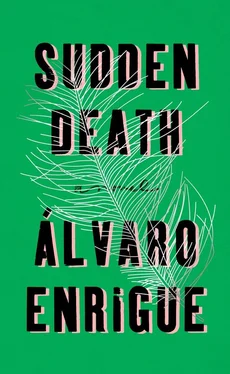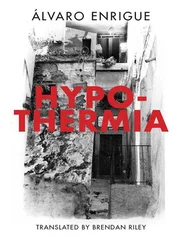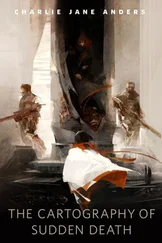Camilla accepted the slightly battered tennis ball given to her by His Holiness and moved to the loggia with her daughters. It’s funny — said her brother on one of the few occasions when he visited her after he was anointed — it was here that Pius gave me the ball that I gave you. What ball? The one made of the hair of the mad queen — do you still have it? It’s here somewhere. Don’t lose it; it was the good-luck charm that kept me alive through the years of darkness.
Camilla had left the ball — which in truth she found a little repellent — in the rooms of the loggia’s overseer: a priest of a certain rank at St. Peter’s who answered to the name Pandolfo Pucci and who had been Michelangelo Merisi da Caravaggio’s first employer in Rome. He’d given him work painting saints in landscapes that he later sold to village churches. None survive.
The Really Lousy Meeting of Two Worlds

As I’ve noted, Hernán Cortés was always in over his head, not least in the life he was fated to lead. He was swamped, too, by a cloak, among other juicier presents that he was given by Moctezuma’s emissaries on the spot that a few days later he baptized as La Villa Rica de la Vera Cruz and that today is the town of Antigua at the mouth of the Huitzilapan River.
A few years ago, on the occasion of the five-hundredth anniversary of the discovery of America, the Spanish government commissioned a replica of the Santa María , Columbus’s caravel from which one of the Pinzón brothers first spied Hispaniola. I saw it in Veracruz, as it happens, and later I was able to visit it in the port of Baltimore, where it was on loan for years, for reasons unknown: it was at a tourist wharf between a World War II submarine and a sumptuous, triple-masted British galleon.
The caravel was a dinghy, a limping little ship that can scarcely be believed to have held a crew of explorers on a diet of infested water, rotten beer, and damp hardtack. It was a rowboat, a nut, a little plucked bird. The brigantines with which Cortés sailed the Mexican coast from Yucatán to Veracruz before deciding to annex Mexico to the Spanish empire were even smaller. Agonizing little ships, in the holds of which the horses could barely stand upright; ships that could sail down a river, and that when tied to a tree stayed put.
The captain and his original conquistadors still looked rumpled and bleary-eyed when the emissaries of Moctezuma arrived, after following the Spaniards’ ships by land from Tabasco. Cortés was absolutely not ready for a diplomatic conversation that first morning in Mexico. They’ve brought gold, said the soldier, whose name was Álvaro de Campos; lots of gold. Then I’m coming, said Cortés; wake Aguilar. When the captain got out of bed, setting his feet on the cabin’s plank floor, there rose behind him — her hair in tangles and her skin a little bruised from the weight of his body — the face of the girl Malinalli Tenépatl, princess of Painala and courtesan of the cacique of Potonchán, skilled in arts no less valuable for being dirty. Time to use your tongue, Cortés ordered. She, whose polyglot brain was beginning to recognize simple orders in Spanish, asked in Chontal: On you or the gentleman? But seeing that Cortés was getting dressed and Álvaro de Campos wasn’t getting undressed, she understood that it was her services as a translator that were required.
Cortés put on his full suit of armor and ordered that, in addition to Aguilar and Malinalli, his mouthpieces, he be joined by the fifteen horsemen distributed among the eleven brigantines that made up the expedition. The others should stay on board until further notice. He ordered that the horsemen dress as if they were riding to conquer Cempoala, with breastplates, chausses, and plumed helmets, even though this was the dry depths of spring and it was hellishly hot. From the drawer in his cabin he took one of the pearl necklaces that he had brought from Cuba in the event of an exchange of gifts, weighing it in his fist, and also took a little bracelet of green glass beads from which hung a tiny, cheap copper crucifix. He put both objects in his pocket and went down to the cargo hold to untie his horse himself.
They had to wade ashore in water up to their balls, each leading his horse with one hand and holding the ship’s mooring line with the other. If the ropes had been rotten, if Cortés’s glove had been new, or if he had been distracted — slapping at a mosquito on his ear — the captain might have been swept away by the current, his body ending up in the Gulf of Mexico and Spain itself falling back to Santiago de Cuba. But that didn’t happen. The explorers came out sopping and bloated from the water absorbed by cloth and leather, and greeted Moctezuma’s emissaries with the obeisance that they had learned very badly during their childhoods as petty wasteland nobility. One of the lieutenants, called Ricardo de los Reyes — after a town in Extremadura and not because he had the slightest trace of noble blood in him — even sat on a rock to pour the water out of his boots, for which he was castigated with a growl that, if it had survived in the dictionaries, would today be considered a Cortesian adjective.
The captain mounted his horse, as his men did theirs, and they all proceeded to the meeting hosted by the local cacique, who was witness to the first exchange between the emissaries of the two bloodiest monarchs in the world at that time.
They met in the plaza of a town with the unpronounceable name of Chalchicueyecan, and there Cortés got off his horse — he alone — and gave the imperial ambassador an embrace of sweat, leather, and steel. His men noted nervously that behind the Aztec and two other Mexica diplomats stood a considerable company of young men wearing nothing but loincloths and cloaks in eye-popping colors, all carrying rather terrifying weapons consisting of clubs studded with knives. No matter how many horses the Spaniards had, they were only eighteen — counting Malinalli, who was a child, and Aguilar, who was a priest and quite overweight, and Cortés, who was an old man.
Aguilar and then Malinalli translated that they came in peace, so long as the Aztecs converted to Christianity. The emissaries said yes of course, no problem. Then they set out their gifts. This is what Moctezuma’s men delivered, no matter which chronicler is consulted:
A solid gold sun
A solid silver moon
More than one hundred gold and silver plates set with jade
Armbands, anklets, lip plugs
Miters and tiaras encrusted with blue gems like sapphires
All kinds of carved green stones
Harnesses, chain mail, doublets, shooting devices, shields
Plumes, fans, and capes made of feathers
Strange woven garments and bed hangings
Cortés thanked them for the gifts and gave them:
The bracelet of glass beads
Since there was a notable imbalance between the two mounds of intercontinental memorabilia, he asked a soldier by the name of Bernardo Suárez to toss him his helmet:
A helmet
When the swap was over — the Mexica ambassadors exchanging slightly disconcerted looks before proceeding, either because Cortés’s gifts were rubbish or because they would have preferred a horse to sacrifice — Cortés made a small bow and turned his back on the imperial messengers. He was preparing to mount again when Aguilar informed him that the Aztecs had something else to add.
The main ambassador said: We bring you these valuable gifts so that you will give them to your emperor as a token of our friendship and respect; we hope that they please you and that you return to deliver them with all your men and all the terrible beasts you have brought with you; we hope that you never again set foot in our lands. Malinalli, who by now had her own agenda and preferred to be the wife of an absentminded old man than to go back to being the sex slave of a cacique and all his friends, translated this as: We bring you these very valuable gifts but in truth they are as nothing compared with what lies ahead; we hope you like them; we give them to you so that you won’t even think about advancing farther with your terrible beasts because we know that the people are so unhappy with the emperor that they would surely join your cause and not ours. Aguilar, seeing the young warriors and their clubs bristling with knives, said: They give you a warm welcome; they say that they bring you these gifts from the emperor of this land, who is troubled because his people are unhappy; they say that it’s best if you don’t help him, that in order to get anywhere you’d have to beat all the boys over there, and they are terrible. Cortés said that he’d think about it, and everyone seemed satisfied with his response.
Читать дальше













